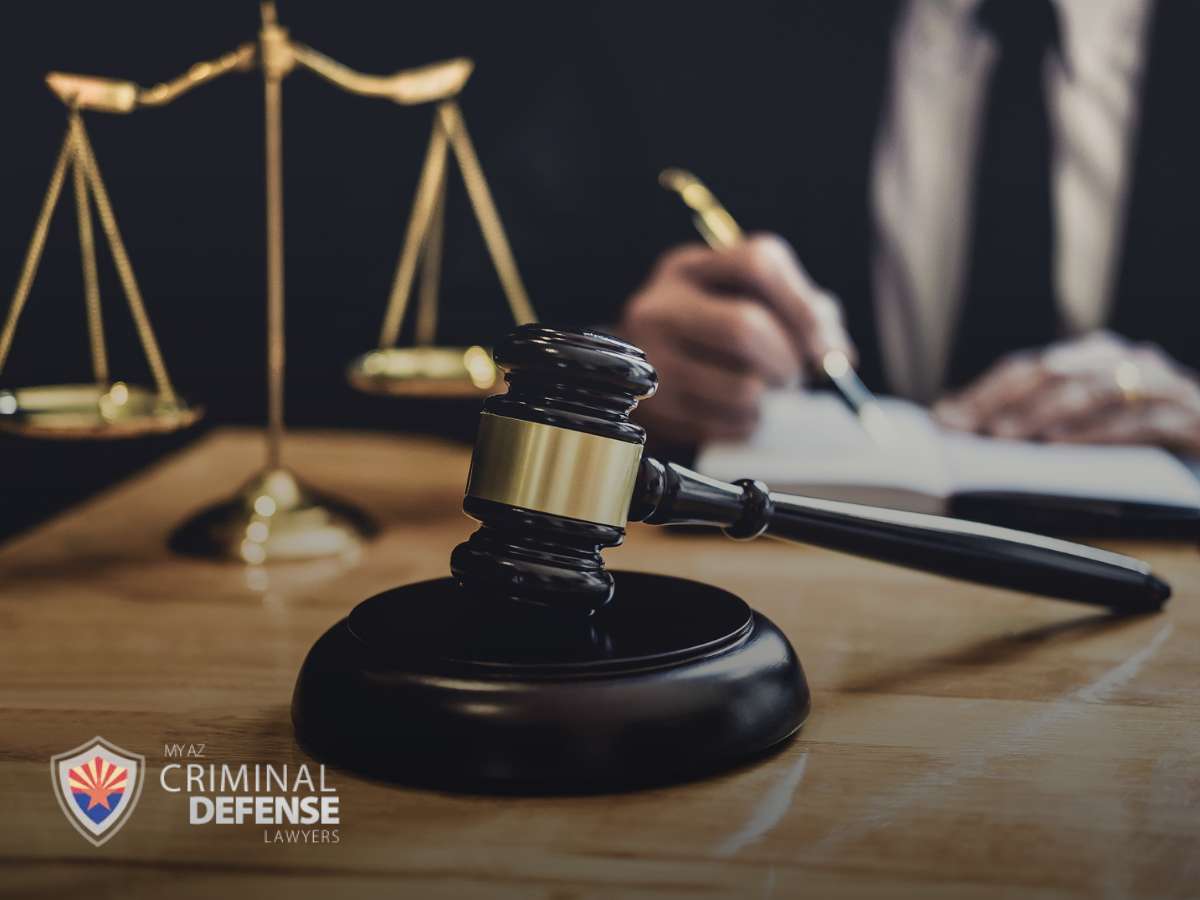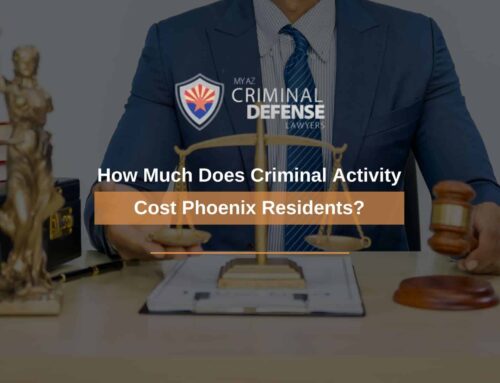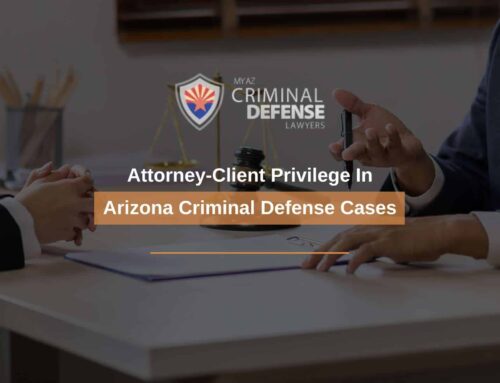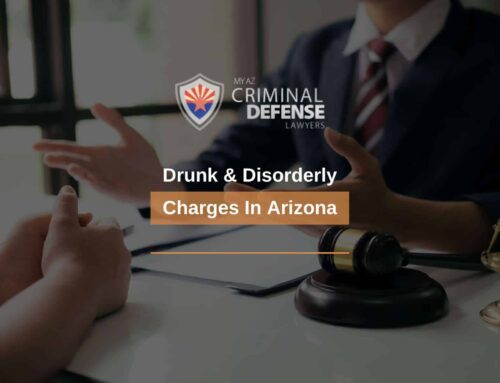Larceny Charges in Tucson, Arizona
One of Tucson, Arizona’s most commonly charged criminal offenses is larceny. Larceny is a term that is often used interchangeably with theft, but it is a type of theft rather than a synonym for theft. Stealing another person’s property can create financial damage for the victim, but it can also create a sense of fear that their privacy has been invaded. Therefore, a defendant convicted of this crime can face serious consequences in the state of Arizona. If you have been accused of larceny in Tucson, you should seek legal advice from a criminal defense attorney in Arizona as soon as possible. Our firm is staffed by skilled attorneys and offers initial consultations free of charge. To schedule your free phone consultation today, call 520-231-2822.

Definition of Larceny
Each state has its statutory definitions of crimes that can be slightly different from definitions in other states. Larceny is defined in Arizona by A.R.S. § 26-1121. Any person who wrongfully takes, obtains, or withholds, by any means from the possession of the owner or of any other person any money, personal property, or article of value of any kind with the intent to permanently deprive or defraud another person of the use and benefit of property or to appropriate it to his use or the use of any person other than the owner is guilty of larceny. The wordiness of the statute is meant to capture a variety of behaviors and avoid loopholes- for example, larceny can occur against the owner of property or any other person. This would prevent a larceny defendant from raising a defense because they stole property from a victim’s employee or relative rather than from the victim directly. It also would prevent a defendant who stole another person’s credit card information from making fraudulent online purchases from raising a defense because the credit card is still in the victim’s physical possession.
The statutory punishment for larceny in A.R.S. § 26-1121 is vague. It states that any person found guilty of larceny shall be punished as a court-martial may direct. This doesn’t even specify whether the offense would be considered a misdemeanor or a felony. This distinction can have a substantial impact on how much time behind bars the defendant will face. Misdemeanor offenses are punishable by up to 6 months in jail. A convicted felon could spend less than 6 months in prison, but will likely face endless struggles due to having a felony conviction on their record. Most felons will find it difficult, as in almost impossible, to find housing, employment, etc. after being released from prison.
Arizona Revised Statutes Section 13-1802: Theft
Theft is defined in Arizona by A.R.S § 13-1802. This statute contains much more comprehensive information than Arizona’s larceny statute. It includes 9 different definitions of theft, essentially guaranteeing that any larceny offenses can be charged under a theft statute in Arizona. It also specifies which level the offense will be charged at, which is largely based on the value of the goods or services allegedly stolen by the defendant.
- Class 2 felony: Theft of property or services worth $25,000 or more
- Class 3 felony: Theft of property or services worth $4,000-$25,000
- Class 4 felony: Theft of property or services worth $3,000-$4,000
- Class 4 felony: Theft of any vehicle engine or transmission of ANY value
- Class 5 felony: Theft of property or services worth $2,000-$3,000
- Class 6 felony: Theft of property or services worth $1,000-$2,000
- Class 1 misdemeanor: Theft of property or services worth less than $1,000
- Class 6 felony: Theft of a firearm or an animal taken for animal fighting
Potential Criminal Penalties for Larceny & Theft in Arizona
Most people think of jail time and fines when they think of the penalties for being convicted of a criminal offense. These are undoubtedly huge concerns, but there are other potential penalties a criminal defendant should keep in mind. After completing a prison sentence, the defendant could be subject to years of probation. This type of monitoring can make a person feel like they aren’t truly free despite being released from prison. Many criminal convictions will limit or restrict a defendant’s driving privileges upon release from incarceration. They can even increase insurance rates and in turn, increase the defendant’s overall cost of living. A defendant may be ordered to pay restitution to restore the victim(s) of their crime, which is separate from any civil lawsuit that the victim might bring. A convicted felon will also lose certain civil rights such as voting, running for public office, and owning a firearm.
The penalty guidelines are stricter if the defendant has prior criminal offenses on their record. A sentence can be reduced by mitigating factors that make the defendant less culpable for their crimes, yet still guilty. Aggravating factors can increase the maximum prison sentence, like using violence in the commission of a crime. The presumptive sentence is the number of years that the law recommends the judge sentence the defendant before taking into account special factors. The statutory penalties for the different levels of theft in Arizona are as follows:
- First offense: A.R.S. § 13-702
- Class 2 felony: 4-10 years. Mitigated 3 years, Aggravated 12.5 years, Presumptive 5 years
- Class 3 felony: 2.5-7 years. Mitigated 2 years, Aggravated 8.75 years, Presumptive 3.5 years
- Class 4 felony: 1.5-3 years. Mitigated 1 years, Aggravated 3.75 years, Presumptive 2.5 years
- Class 5 felony: .75-2 years. Mitigated .5 years, Aggravated 2.5 years, Presumptive 1.5 years
- Class 6 felony: .5 years-1.5 years. Mitigated .33 years, Aggravated 2 years, Presumptive 1 year
- Class 1 misdemeanor (A.R.S. § 13-707): Maximum 6 months
- Second offense: A.R.S. § 13-703
- Class 2 felony: 6-18.5 years. Mitigated 4.5 years, Aggravated 23 years, Presumptive 9.25 years
- Class 3 felony: 4.5-13 years. Mitigated 3.25 years, Aggravated 16.25 years, Presumptive 6.5 years
- Class 4 felony: 3-6 years. Mitigated 2.25 years, Aggravated 7.5 years, Presumptive 4.5 years
- Class 5 felony: 1.5-3 years. Mitigated 1 year, Aggravated 3.75 years, Presumptive 2.25 years
- Class 6 felony: 1-2.25 years. Mitigated .75 years, Aggravated 2.75 years, Presumptive 1.75 years
Larceny Defenses
As you can see, Arizona punishes theft charges strictly, so you should create a strong defense if accused of larceny in Tucson. The defendant should find supporting documentation if they are accused of stealing an item that was originally a gift, including if the person who is now alleging theft is a vulnerable adult. The defendant can also make arguments regarding the value of the item in question to reduce the level at which the offense is charged.
Other defenses against larceny charges (and other criminal offenses) come from protections provided by the United States Constitution. Law enforcement can’t invade your rights to privacy in the investigation of a crime unless certain exceptions apply. There generally must be reasonable suspicion to perform an investigation and probable cause to make an arrest. Failure to read a criminal defendant their Miranda Rights can also affect the outcome of a criminal prosecution. For more information about which defenses could apply in your case, call 520-231-2822 to schedule your free consultation.
Fight Back Against Larceny Charges in Tucson with Our Experienced Law Firm
A high-quality defense firm could be all the difference between getting the book thrown at you and experiencing a mitigated impact on your life due to a skillful defense. My AZ Criminal Defense Lawyers at Tucson know what it takes to achieve the best possible resolution in a variety of situations. Whether you would be best served by a plea agreement or your case needs to go all the way to trial, our law team is prepared. To get started with your free consultation, contact us through our online form or call us at 520-231-2822.

My AZ Criminal Defense Lawyer
Mesa Location:
1731 West Baseline Rd., Suite #100
Mesa, AZ 85202
Office: (480) 448-9800
Glendale Location:
20325 N 51st Avenue Suite #134, Building 5
Glendale, AZ 85308
Office: (602) 509-0955
Tucson Location:
2 East Congress St., Suite #900-6A
Tucson, AZ 85701
Office: (520) 441-1450
Avondale Location:
12725 W. Indian School Rd., Ste E, #101
Avondale, AZ 85392
Office: (623) 499-4222







